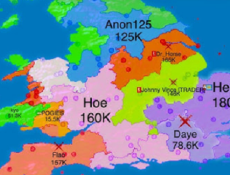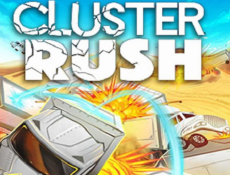Colonist.io is a digital board game that adapts the structure of resource trading and settlement building into an online format. Players compete on a hexagonal map, where each tile produces specific resources when dice rolls match their number. The objective is to expand settlements, build roads, and gain enough points to win. Because it is browser-based, the game allows fast access without installation, making it simple to start a match with friends or random opponents.


Colonist.io
Advertisement

Advertisement
Colonist.io is a digital board game that adapts the structure of resource trading and settlement building into an online format. Players compete on a hexagonal map, where each tile produces specific resources when dice rolls match their number. The objective is to expand settlements, build roads, and gain enough points to win. Because it is browser-based, the game allows fast access without installation, making it simple to start a match with friends or random opponents.
Gameplay And Objectives
In Colonist.io each participant begins with a limited number of settlements and roads. The placement of these starting structures determines the flow of the game, as it affects resource collection. Players gather wood, brick, wheat, sheep, and ore, then use them to expand across the board. Victory comes from reaching a target score, usually by building more settlements, upgrading them into cities, or holding special achievements. Dice rolls bring randomness, but careful positioning and trading are equally important.
Features And Mechanics
Colonist.io keeps the traditional flow of turn-based board play but adds modern online tools. Players can trade with others through a simple interface, manage resources with clear displays, and play at different speeds depending on match settings. Special cards add further variety, providing opportunities for progress or disrupting opponents.
Key features include:
- Turn-based gameplay with resource collection
- Online trading between players
- Settlements, roads, and cities as core structures
- Development cards with unique effects
- Adjustable match speeds and settings
Strategy And Depth
The strategy in Colonist.io comes from balancing short-term goals with long-term planning. Building in resource-rich areas ensures steady growth, but blocking rivals can be just as effective. Trading decisions often shift the balance, as giving away one resource may strengthen an opponent. The need to adapt to dice outcomes while keeping an eye on the score makes every session different.
Colonist.io shows how a classic board game structure can transition into a browser-based environment while keeping its core intact. It allows players to focus on strategy without setup or cleanup, and its accessibility makes it possible to play anywhere with an internet connection. The balance between resource management, trading, and tactical expansion keeps the experience engaging across repeated matches.




















